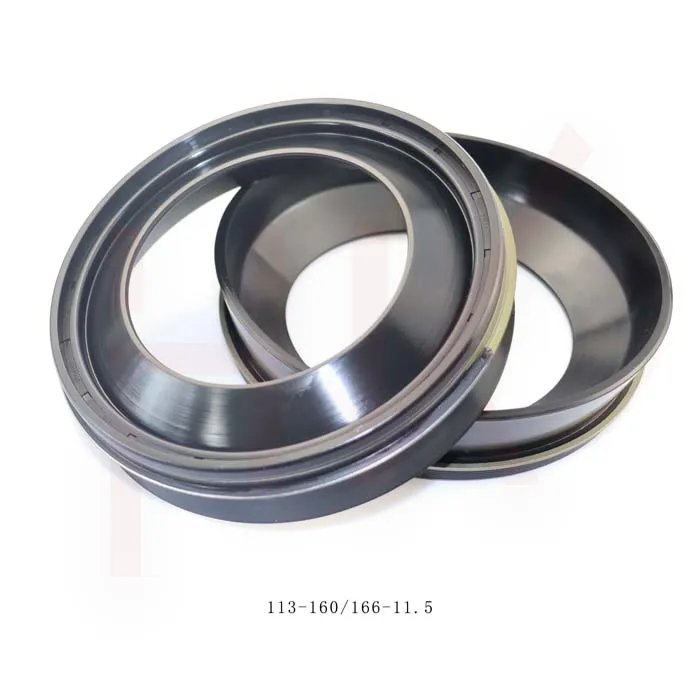Oct . 11, 2024 15:44 Back to list
hydraulic piston oil seals
Understanding Hydraulic Piston Oil Seals Importance and Applications
Hydraulic piston oil seals play a crucial role in the efficient operation of hydraulic systems, which are widely used across various industries such as manufacturing, automotive, and construction. These seals are designed to prevent fluid leakage and contamination while sustaining high pressure, ensuring the smooth functioning of hydraulic cylinders.
Oil seals, commonly known as shaft seals or simply seals, are crafted from a range of materials, including rubber, polyurethane, and even metal. The choice of material typically depends on the operational environment and the type of hydraulic fluid being used. For instance, neoprene and nitrile rubber are popular for their excellent resistance to petroleum-based fluids, while fluorocarbon seals are favored for their ability to withstand high temperatures and aggressive chemicals.
The primary function of hydraulic piston oil seals is to maintain a barrier that prevents hydraulic fluid from leaking out of the cylinder. This is imperative because even the slightest leakage can lead to reduced efficiency, increased wear and tear on components, and, subsequently, costly downtime during repairs. Furthermore, oil seals protect the internal components of the hydraulic system from external contaminants such as dirt, dust, and moisture, which could lead to malfunctions and reduced service life.
In a typical hydraulic system, the piston moves within the cylinder, creating pressure that can activate machinery or tools. As the piston moves, the oil seal must adapt to the changing dynamics without losing its sealing capability. This is where the design of the seal becomes critical. Many seals are designed with special geometries and features, such as lip shapes and spring-loaded edges, to facilitate a tight fit and compensate for wear over time.
hydraulic piston oil seals

Several factors influence the performance and longevity of hydraulic piston oil seals. Temperature fluctuations, exposure to chemicals, and pressure levels can all impact the integrity of seals. For example, extreme heat can cause rubber seals to harden and crack, while exposure to certain chemicals may lead to swelling or degradation. Therefore, regular maintenance checks and timely replacements are essential to ensure that the seals function effectively.
In addition to traditional applications in machinery and hydraulic devices, hydraulic piston oil seals are also integral in the automotive industry. They are found in various automotive components, including brakes, power steering systems, and automatic transmissions, where they help maintain high pressure and prevent leakage of hydraulic fluids.
In the future, advancements in material science and engineering are expected to lead to the development of even more resilient and efficient hydraulic piston oil seals. Innovations could include smart seals that monitor their condition and performance in real-time, providing valuable data for predictive maintenance and reducing the likelihood of unexpected failures.
In summary, hydraulic piston oil seals are vital components that ensure the efficiency and reliability of hydraulic systems. Their ability to prevent leaks and contamination not only enhances operational performance but also extends the lifespan of machinery. As industries continue to evolve and technology advances, the importance of high-quality oil seals will only grow, underscoring the need for ongoing research and development in this essential area.
-
Reliable Oil Seal Wheel Hub Solutions for Industrial & Automotive Use
NewsNov.17,2025
-
Durable Front Hub Oil Solutions for Industry – HKAiSeal
NewsNov.17,2025
-
Wholesale Hydraulic Pump Motor Seal Kit A4VSO250 | In Stock
NewsNov.17,2025
-
Pump Seal Kits: Essential Components for Industrial Reliability
NewsNov.17,2025
-
TCV Oil Seal - Double-Lip, Spring-Loaded, High Temp & Wear
NewsNov.17,2025
-
Hydraulic Seal Kits: Reliable Solutions for Industrial Equipment
NewsNov.17,2025
-
Combined oil seal 659214 12001903B, fits 119990, NBR OEM
NewsNov.17,2025
Products categories
















